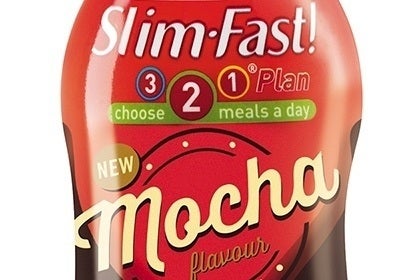Unilever announced late yesterday (10 July) that it has sold its Slim-Fast diet foods business as it trims the fat from its food portfolio. The news comes as further evidence of the overall decline in the weight management foods sector in markets like the US and UK, Katy Askew suggests.
Unilever has sold a majority stake in its Slim-Fast diet foods business, which is active in the US, UK and Ireland. The unit was snapped up by private equity firm Kainos Capital for an undisclosed sum.
The move comes in the context of Unilever’s drive to sell-off non-core food businesses in order to focus on “fewer, bigger brands” and drive up margins.
The disposal marks the completion of this process in its US business, where it has also sold off the Ragu and Bertolli sauce brands, its Wish-Bone salad dressing arm and the Skippy peanut butter brand.
Kees Kruythoff, president of Unilever’s North American business, said: “The Slim-Fast sale is the last step in the portfolio reshaping that we had planned for North America. This transaction, along with previously announced divestitures, will give us the focus to drive growth behind our core portfolio.”
Assessing the sale, Kepler Cheuvreux analyst Richard Withagen said Unilever’s recent divestitures had allowed the group to improve margins, bringing returns to a level well above the food sector average.

US Tariffs are shifting - will you react or anticipate?
Don’t let policy changes catch you off guard. Stay proactive with real-time data and expert analysis.
By GlobalData“Over the last four years, Unilever has divested sales for more than EUR2bn globally. We believe these divestments have helped Unilever to reach ROCE levels of close to 20%, ahead of an average of peers at c. 15%, as the divestments have reduced complexity and enabled the business to focus on its core brands,” he wrote in a note to investors.
While Unilever has not disclosed Slim-Fast’s sales figures, Withagen estimates them to stand at around EUR100-150m, less than 1% of group sales. Slim-Fast revenues have defied Unilever’s attempts to reverse their downward trajectory and the declining trend will have impacted the purchase price, Withagen added.
“Sales have fallen since 2003 and although Unilever tried to revive the brand a couple of times, they have not been successful. Innovation has slowed down in recent years and international expansion was put on hold or reversed. Unilever bought the business in 2000 for US$2.4bn and given the sales decrease, we expect proceeds to be in the range of 1x sales.”
Unilever’s Slim-Fast business is not the only diet food brand that has struggled of late. ConAgra Foods’ Healthy Choice and Nestle’s Lean Cuisine have both witnessed declining sales trends. Weight management systems such as Nutrisystem and Weight Watchers have also seen growing competition in the space while Nestle sold off its Jenny Craig weight management business earlier this year.
Diet brands are struggling across the board in developed markets like the US and UK. Despite sky rocketing obesity rates, it would seem consumers are no longer buying into diet foods.
According to market research firm Mintel, UK sales of weight management foods rose by a “conservative” 10% to GBP1.6bn between 2007 and 2012 – with growth coming to a “standstill” in 2012.
“Around one in five (19%) Brits use diet food and drink, the number of users having dropped from 21% in 2008, meanwhile, just 5% of Brits use diet products, such as appetite controllers and meal replacements,” the researchers wrote.
“The troubles of the diet and weight control market cannot be attributed to consumers lacking interest in losing weight, in fact, quite the contrary,” Emma Clifford, senior food analyst at Mintel, said.
According to her assessment, consumers remain concerned about weight management, but attitudes are shifting to focus on eating smaller portions and cutting back on certain types of food.
Consumers – and food marketers – have increasingly come to focus on positive nutrition and the boundaries between diet and regular foods have become gradually blurred. Categories like spots nutrition, healthy snacks and the meteoric rise of Greek yoghurts have increased appeal among weight conscious consumers.
A new found focus on protein is one example of conventional brands raising their appeal to consumers watching their diets. Demand for conventional products that offer dietary benefits while also slotting into the consumer’s daily lives is increasing exponentially.
As Nestle said in a recent investor presentation on its plans to revitalise Lean Cusine, today’s consumer wants a “modern health and wellness partner”, leaving traditional concepts of “hard-diet” food looking outdated.
The landscape of weight management foods has shifted. Foods that focus on a negative, self-denying, diet message have fallen out of vogue. The dinosaurs of the diet category will need to reinvent their image if they are to survive and prosper in this new environment.
As Unilever moves to focus its food portfolio it certainly makes sense to shed Slim Fast – an asset in need of some TLC operating in a category where sales are under pressure across the board.





